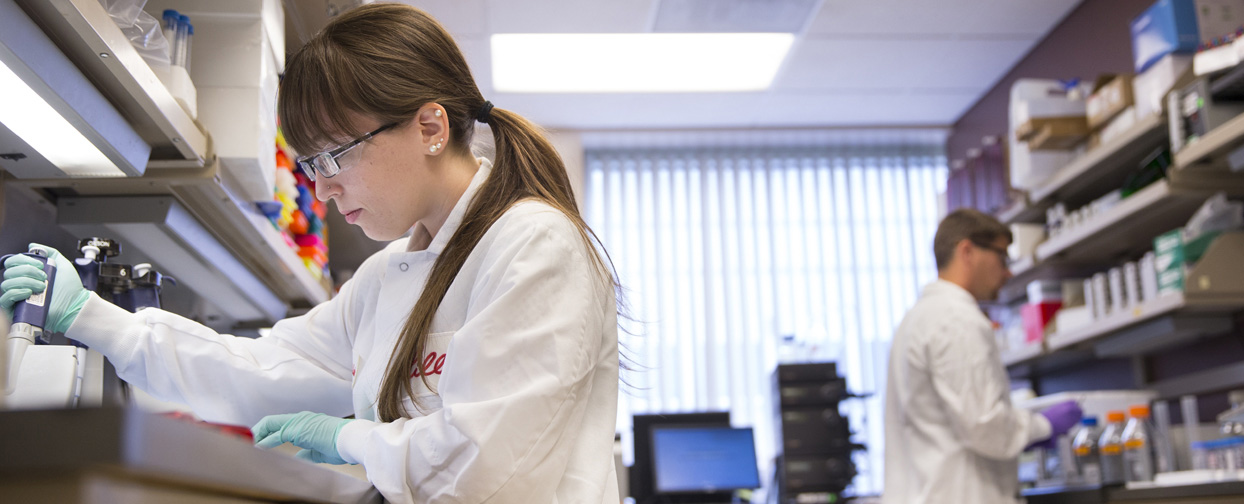Lilly's Trulicity® (dulaglutide) Label Updated to Include Use in Combination with Basal Insulin for Adults with Type 2 Diabetes
"Despite best efforts to manage their A1C, many adults with type 2 diabetes may need to add to or change their treatment plan to help them reach their blood sugar goals," said
Trulicity is a once-weekly glucagon-like peptide-1 (GLP-1) receptor agonist injectable prescription medicine to improve blood sugar (glucose) in adults with type 2 diabetes. It should be used along with diet and exercise.
Trulicity is not recommended as the first medication to treat diabetes. It has not been studied in people who have had inflammation of the pancreas (pancreatitis). It is not a substitute for insulin. Trulicity should not be used by people with type 1 diabetes, people with diabetic ketoacidosis, or people with a history of severe stomach or intestinal problems. It has not been studied in children under 18 years of age.
Trulicity has a Boxed Warning about potential thyroid tumors, including cancer. It should not be taken by someone with a personal or family history of medullary thyroid cancer, a personal history of Multiple Endocrine Neoplasia syndrome type 2, or an allergy to Trulicity.
The Trulicity label update is based on
The label was also updated to include results from the AWARD-8 clinical trial, a Phase 3b randomized, double-blind, placebo-controlled, 24-week study that evaluated the efficacy and safety of Trulicity 1.5 mg as an add-on to sulfonylurea compared to placebo plus sulfonylurea.2
Trulicity was first approved in
*In a usability study, 94 percent of people said the pen was easy to use. Patients should read the Instructions for Use included with their pen.
Important Safety Information for Trulicity®
Patients should tell their healthcare provider if they get a lump or swelling in their neck, have hoarseness, trouble swallowing, or shortness of breath while taking Trulicity. These may be symptoms of thyroid cancer. In studies with rats or mice, Trulicity and medicines that work like Trulicity caused thyroid tumors, including thyroid cancer. It is not known if Trulicity will cause thyroid tumors or a type of thyroid cancer called medullary thyroid carcinoma (MTC) in people. Patients should not take Trulicity if they or any of their family members have ever had MTC or if they have Multiple Endocrine Neoplasia syndrome type 2 (MEN 2).
Patients should not take Trulicity if they have had an allergic reaction to dulaglutide or any of the other ingredients in Trulicity.
Trulicity may cause serious side effects, including:
- Inflammation of the pancreas (pancreatitis). If a patient has pain in their stomach area (abdomen) that is severe and will not go away, they should stop taking Trulicity and call their healthcare provider right away. The pain may happen with or without vomiting. It may be felt going from the abdomen through to the back.
- Low blood sugar (hypoglycemia). If patients are using another medicine that can cause low blood sugar (such as insulin or a sulfonylurea) while taking Trulicity, their risk for getting low blood sugar (hypoglycemia) may be higher. Signs and symptoms of low blood sugar may include dizziness, blurred vision, anxiety, irritability, mood changes, sweating, slurred speech, hunger, confusion or drowsiness, shakiness, weakness, headache, fast heartbeat, or feeling jittery. Patients should talk to their healthcare provider about low blood sugar and how to manage it.
- Serious allergic reactions. Patients should stop taking Trulicity and get medical help right away if they have symptoms of a serious allergic reaction, such as itching, rash, or difficulty breathing.
- Kidney problems (kidney failure). In people who have kidney problems, diarrhea, nausea, and vomiting may cause a loss of fluids (dehydration). This may cause kidney problems to get worse.
- Severe stomach problems. Trulicity may cause stomach problems, which could be severe.
Patients should tell their healthcare provider if they:
- have or have had problems with their pancreas, kidneys, or liver.
- have severe problems with their stomach, such as slowed emptying of the stomach (gastroparesis) or problems with digesting food.
- have any other medical conditions.
- are pregnant or plan to become pregnant, or if they become pregnant while taking Trulicity. It is not known if Trulicity will harm their unborn baby.
- are breastfeeding or plan to breastfeed. It is not known if Trulicity passes into breast milk. Patients should not use Trulicity while breastfeeding without first talking to their healthcare provider.
- are taking other medicines including prescription and over-the-counter medicines, vitamins, and herbal supplements. Trulicity may affect the way some medicines work and some medicines may affect the way Trulicity works.
- are taking other medicines to treat diabetes, including insulin or sulfonylureas.
The most common side effects with Trulicity may include: nausea, diarrhea, vomiting, decreased appetite, and indigestion. Patients should talk to their healthcare provider about any side effect that bothers them or does not go away. These are not all the possible side effects of Trulicity. Patients should call their doctor for medical advice about side effects.
Patients are encouraged to report side effects of prescription drugs to the
Please click to access Prescribing Information, including Boxed Warning about possible thyroid tumors including thyroid cancer, and Medication Guide.
Please see Instructions for Use included with the pen.
DG PR ISI 24SEP2015
About Diabetes
Approximately 29 million Americans3 and an estimated 415 million people worldwide have type 1 and type 2 diabetes.4 Type 2 diabetes is the most common type, accounting for an estimated 90 to 95 percent of all diabetes cases.3 Diabetes is a chronic disease that occurs when the body does not either properly produce or use the hormone insulin.
About Lilly Diabetes
Lilly has been a global leader in diabetes care since 1923, when we introduced the world's first commercial insulin. Today we are building upon this heritage by working to meet the diverse needs of people with diabetes and those who care for them. Through research and collaboration, a wide range of therapies and a continued determination to provide real solutions—from medicines to support programs and more—we strive to make life better for all those affected by diabetes around the world. For more information, visit www.lillydiabetes.com.
About Eli Lilly and Company
Lilly is a global healthcare leader that unites caring with discovery to make life better for people around the world. We were founded more than a century ago by a man committed to creating high-quality medicines that meet real needs, and today we remain true to that mission in all our work. Across the globe, Lilly employees work to discover and bring life-changing medicines to those who need them, improve the understanding and management of disease, and give back to communities through philanthropy and volunteerism. To learn more about Lilly, please visit us at www.lilly.com and www.lilly.com/newsroom/social-channels.
P-LLY
Trulicity® is a registered trademark owned or licensed by
This press release contains forward-looking statements (as that term is defined in the Private Securities Litigation Reform Act of 1995) about Trulicity as a treatment of type 2 diabetes, along with diet and exercise, and Lilly's current beliefs. However, as with any pharmaceutical product, there are substantial risks and uncertainties in the process of development and commercialization. Among other things, there can be no guarantee that future study results will be consistent with study findings to date, that Trulicity will receive additional regulatory approvals or that Trulicity will prove to be commercially successful. For further discussion of these and other risks and uncertainties, see Lilly's most recent Form 10-K and Form 10-Q filings with the
PP-DG-US-0716 2/2017 ©LillyUSA, LLC 2017. All rights reserved.
1 Pozzilli P, Norwood P, Jodar E, et. al. Improved Glycemic Control and Weight Loss with Once Weekly Dulaglutide versus Placebo, Both Added to Titrated Daily Insulin Glargine, in Type 2 Diabetes Patients (AWARD-9). Data presented at 76th American Diabetes Association Scientific Sessions,
2 Dungan, K, Weitgasser R, Manghi FP, et. al. Efficacy and Safety of Once Weekly Dulaglutide Added on to Sulfonylurea in Type 2 Diabetes (AWARD-8). Abstract 0219-PD. Presented at 2015
3
4
Refer to:
317-741-8811, Lilly Diabetes

To view the original version on PR Newswire, visit:http://www.prnewswire.com/news-releases/lillys-trulicity-dulaglutide-label-updated-to-include-use-in-combination-with-basal-insulin-for-adults-with-type-2-diabetes-300403929.html
SOURCE
News Provided by Acquire Media
